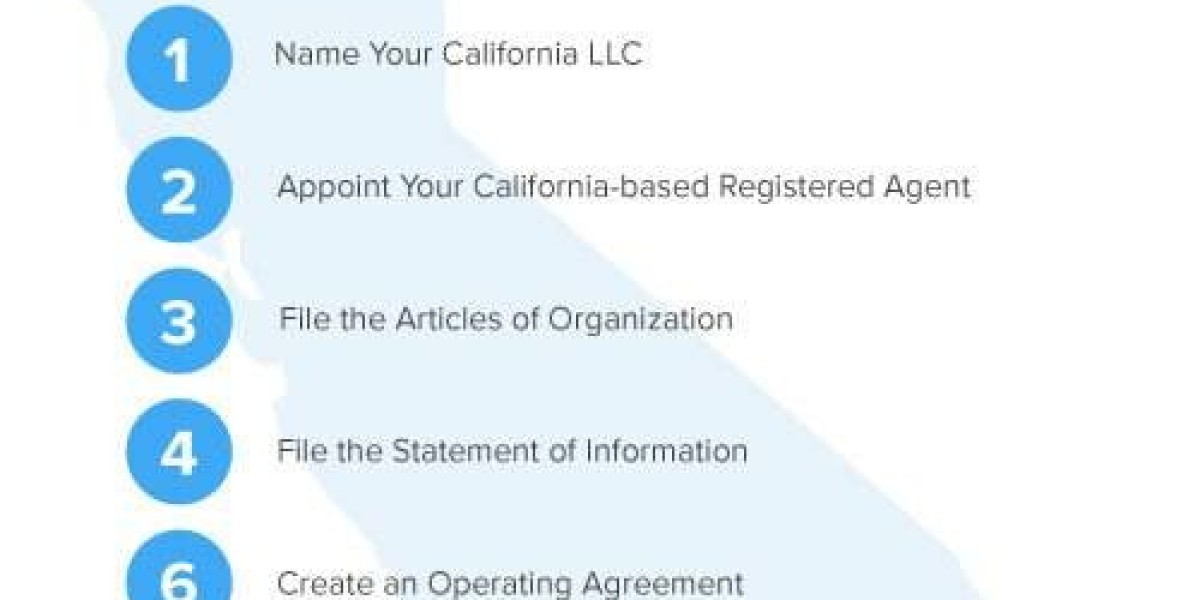Introduction:
Starting a business can be an exhilarating journey filled with possibilities and potential, but it also requires careful planning and consideration, especially when it comes to choosing the right legal structure. One popular option for entrepreneurs in California is forming a Limited Liability Company (LLC). In this guide, we'll delve into the intricacies of forming an LLC in California, providing you with the knowledge and resources you need to navigate the process successfully and set your business on the path to success.
Understanding the Basics of an LLC:
Before diving into the specifics of forming an LLC in California, it's essential to understand what exactly an LLC is and why it might be the right choice for your business. An LLC is a flexible business structure that combines the limited liability protection of a corporation with the pass-through taxation of a partnership or sole proprietorship. This means that owners of an LLC, known as members, are not personally liable for the company's debts and obligations, and the company's profits and losses are passed through to the members' personal tax returns.
Advantages of Forming an LLC in California:
There are several advantages to choosing an LLC as the legal structure for your business in California. First and foremost is the limited liability protection it offers. By forming an LLC, you shield your personal assets from the debts and liabilities of the business, providing you with peace of mind and financial security.
Additionally, LLCs offer flexibility in management and operations. Unlike corporations, which are required to adhere to strict corporate formalities, such as holding annual meetings and keeping detailed records, LLCs have fewer formal requirements, allowing for more flexibility in how the business is run.
Another benefit of forming an LLC in California is the pass-through taxation. Unlike C corporations, which are subject to double taxation at both the corporate and individual levels, LLCs are taxed only at the individual level. This means that profits and losses flow through to the members' personal tax returns, avoiding the double taxation trap.
Steps to Forming an LLC in California:
Now that we've covered the basics and advantages of forming an LLC in California, let's delve into the specific steps you need to take to make it happen.
- Choose a Name: The first step in forming an LLC in California is choosing a name for your business. The name you select must be unique and not already in use by another business in California. Additionally, it must include the words "Limited Liability Company" or an abbreviation like "LLC."
- File Articles of Organization: Once you've chosen a name for your LLC, you'll need to file Articles of Organization with the California Secretary of State. This document officially establishes your LLC and includes essential information such as the name of the LLC, its address, the names and addresses of the members, and the name and address of the registered agent.
- Create an Operating Agreement: While not required by law, creating an operating agreement is highly recommended for LLCs in California. This document outlines the ownership and management structure of the LLC, as well as the rights and responsibilities of the members. Having a well-drafted operating agreement can help prevent disputes and misunderstandings down the line.
- Obtain Necessary Permits and Licenses: Depending on the nature of your business, you may need to obtain permits or licenses from various state and local agencies in California. This could include business licenses, zoning permits, health permits, and more. Be sure to research the requirements for your specific industry and location.
- Comply with Tax and Regulatory Requirements: Finally, don't forget to comply with all tax and regulatory requirements for LLCs in California. This may include obtaining an Employer Identification Number (EIN) from the IRS, registering for state taxes such as sales tax or employment tax, and filing annual reports with the California Secretary of State.
Conclusion:
Forming an LLC in California can be a straightforward and advantageous choice for entrepreneurs looking to start a business. By following the steps outlined in this guide and seeking the assistance of legal and financial professionals when needed, you can navigate the process with confidence and set your business on the path to success. Remember, careful planning and attention to detail are key to building a strong foundation for your business and ensuring its long-term viability in the competitive California market.



